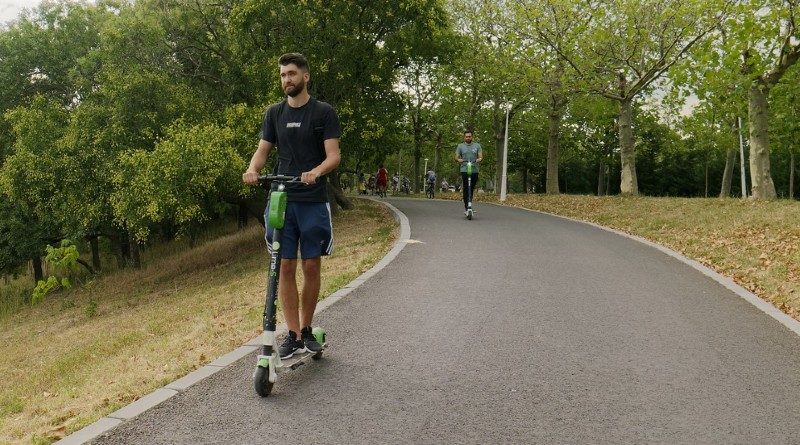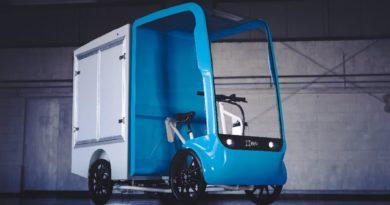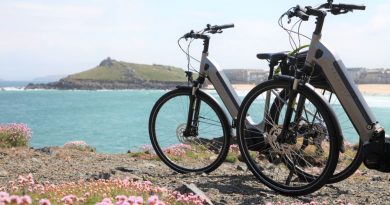e-Scooters in the UK modal mix: Management powers for local authorities
In the fourth and final instalment of CI.N’s e-Scooter series reporting from the webinar organised by Landor Links, which brought together active travel experts and local authority representatives to discuss the e-Scooter’s place in the UK’s modal mix, the focus is on management powers for local authorities.
In light of rental trials rolling out across the UK, the discussion centred around four key topics: speed and safety; impacts on active travel; operator business models and operational guidelines; and management powers for local authorities. With electric scooter firms queuing up for UK street space, CI.N listens in on how local authorities can effectively manage the roll out of e-Scooter trials over the coming year, and some of the learnings they may be able to take.
The panellists participating in the webinar hail from a variety of backgrounds across active travel, industry, research and government. Their views were backed up by a number of polls throughout the webinar to gauge the opinions of the audience in light of the points raised.
Read up on what the experts had to say on scooter safety in light of rental trials in the first article in the series, gauge their thoughts on the impacts e-Scooters could have on other active travel forms in the second instalment, and their suggestions for e-Scooter business models and operational guidelines in part three.
Management powers for local authorities
As far as the webinar panellists were concerned, much of the success of the e-Scooter trials in the UK will hinge on how local authorities manage their implementation.
Nick Davies and his colleagues of the Healthy Active Cities Research Centre at the University of Salford, conducted a study on dockless bike share schemes in order to take learnings from how local authorities managed these; including what not to do. “It taught us that we need to be a lot more involved in the delivery of the scheme,” he said. “If you roll out an e-Scooter scheme, that should probably be the main consideration. The study also showed us major inequalities to accessibility and highlighted certain demographics of people who weren’t taking up the scheme because of where they lived, their gender, and so on. For whatever reason, these people weren’t able to access the scheme and this is something local authorities must be thinking about before they implement an e-Scooter sharing scheme.”
Mark Collins, Integration Innovation Lead at Transport for the West Midlands which is one of the first to roll out an e-Scooter sharing scheme in the UK, echoed this, saying his team had thought long and hard about these issues.
“This is something we’ve been wrestling with,” he offered. “We have taken the decision to be very actively involved in how the scheme will work, working closely with the different authorities involved and taking the position of ‘active management’ both to ensure we can be prescriptive around where they operate, but also align ourselves to the safety requirements, and the qualification of evaluation.”
Collins continued that TfWM was looking at the e-Scooter trials as an opportunity to learn how the general public embrace scooters and then use this to make judgements on policy and legislation for their use.
He added: “What does success look like? What can we learn from this around whether a long term solution concerning e-Scooter use is viable for the West Midlands? We need to look at cross area and intra area data to monitor behaviour, attitudes and use characteristics, as well as modal split.”
According to Brian Deegan, Design Engineer for Urban Movement, local authorities should take a libertarian stance towards the e-Scooter trials: “If we don’t want e-Scooters on our footways, then we need to provide nice conditions for them on the roads. I want to learn from previous dockless bike share models where we have planning and regulations in place, to put us on the right foot. We need to create better streets for everyone and this means we are all in it together.
He added: “Mobility is a service, so moving people towards not owning their own vehicles and a more equitable system is where e-Scooters can start helping to make inroads towards this effect.”
David Davies, Executive Director at PACTS, also believes local authorities should be active in the roll out of the e-Scooter schemes, particularly in those schemes which have less safety features than others: “Trials are likely to be successful if they don’t allow such heavy wheels and big scooters, we need to urge local authorities to publish their plans to make them a reality. Monitoring is key – we are all keen to learn from these trials and enable the most disadvantaged group, such as the visually impaired, to comment in real-time what they think of the trials, too.”
Taking learnings from current bike share models was also something echoed by Ceri Woolsgrove, Policy Officer at the European Cyclists’ Federation (ECF), who insisted communication between operators and local authorities was vital to the trials’ success.
“We’re still scarred by the impact of the pyro bikes back in 2016, where Ofo and Mobike and others imported thousands of bikes into cities without proper distribution, and we ended up with piles of bikes at the bottom of hills and on pavements,” he offered. “It is imperative that we have interaction between operators and local authorities, and that regulations are in place. In Paris, there is no pavement use of e-Scooters because they have geofencing in pace and parking zones available.
“This may be more difficult for free floating systems,” he acknowledged. “But if a scooter is parked in the wrong place then the operator could get fined in order to get that scooter back, which would set a precedent. It is crucial we have good regulation or we will end up with the bike share issue f 2016 all over again.”
The panellists’ discussion was followed up by a couple of polls opened up to the audience to give their views on the topics in question. The first poll asked participants if operators should be required to share usage data freely, which saw 92% of the audience vote yes, they should share their data, compared to 4% who said no, and 3% who weren’t sure. From the conclusions drawn from the discussion, it seems the sharing of data and best practice between operators and local authorities could be crucial to the success of e-Scooter trials in the UK, and the subsequent legislation for them.
The second poll asked the audience what they thought e-Scooter operators should do to avoid making the same mistakes as some dockless bike share operators. 61% believed better collaboration with local authorities was the answer, while 10% thought public funding for local authorities to operate the schemes themselves could be the way forward. 23% of participants said a robust maintenance and deployment strategy would be key to avoiding the same mistakes as some bike share operators, while 6% thought a guaranteed, sustainable business model would provide the answer.
CI.N has covered the other topics touched on in the webinar in a series of in-depth articles, examining the influence e-Scooters could have on the UK’s future modal mix. Read what the panel thought of e-Scooters and their safety implications here, gauge their thoughts on the impacts e-Scooters could have on other active travel forms in the second instalment, and see if you agree with their suggestions for e-Scooter business models and operational guidelines in part three.



